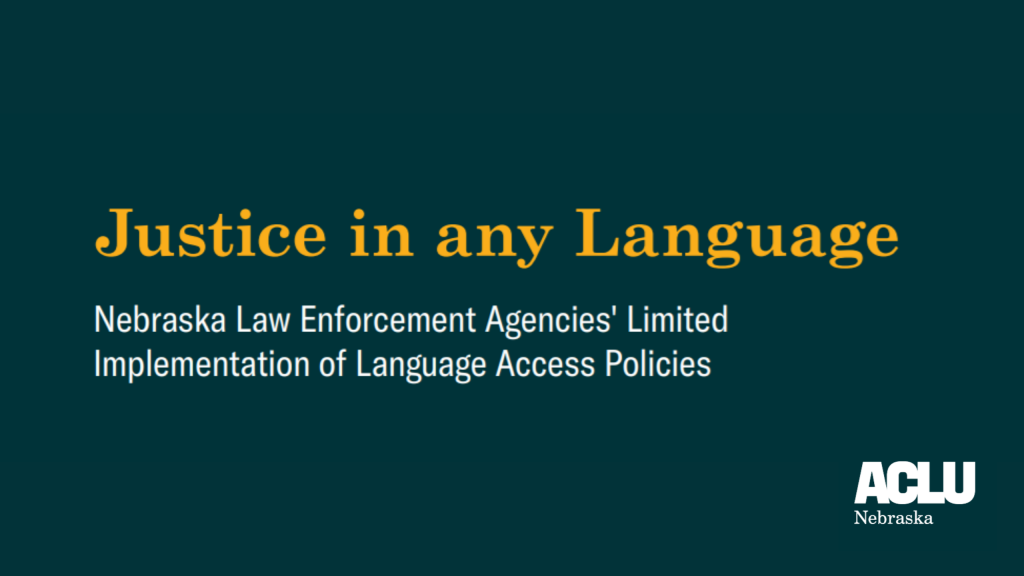

LINCOLN, NE – The ACLU of Nebraska released a new report on how law enforcement agencies in Nebraska serve Nebraskans with limited English proficiency in comparison to best practices identified by the U.S. Department of Justice.
“Justice in any Language,” authored by Rose Godinez, Legal and Policy counsel at ACLU of NE, compares 19 agencies, finding that most are not meeting the DOJ’s recommended best practices.
According to the ACLU of NE, federal law requires law enforcement agencies that receive federal funds to ensure people with limited English proficiency have meaningful language access to agency services. The organization says it often hears from Nebraskan’s who believe officers do not navigate language barriers appropriately.
“Nebraska law enforcement agencies have made progress by intentionally recruiting multilingual officers, but we remain deeply concerned that law enforcement agencies are not meeting the needs of Nebraskans with limited English proficiency as required by federal law and recommended by the U.S. Department of Justice,” Godinez said.
Anna Deal, Legal Director at Immigrant Legal Center, is featured in the report along with other community leaders who serve Nebraska’s Hispanic and Latinx communities, highlighting the importance of language access for individuals with limited English proficiency (LEP).
“Where police and immigrants cannot communicate effectively, confusion and fear are made worse,” Deal wrote. “Meaningful language accessibility for individuals with LEP is therefore critical to enabling immigrant and refugee community members to advance their rights, and to fostering trust and cooperation with law enforcement. Our communities are safer when everyone, regardless of languages spoken, feels valued and heard by those entrusted to keep us safe.”
From the ACLU of NE’s report:
– 16 of 19 surveyed agencies did not make their policy or guidance on language assistance services publicly available.
-12 of 19 surveyed agencies did not have instructions for their officers on how and when to access language assistance services in different situations, such as interviews, interrogations, or traffic stops.
-12 of 19 surveyed agencies did not track how often officers have used language assistance services.
-14 of 19 surveyed agencies did not have any officers who have attended training on the topic.
-4 of 19 surveyed agencies do not employ a multilingual officer.
To view the full press release click here, to view the full report click here.




Stay updated on the latest news, events, and opportunities to support our neighbors. Subscribe to our emails to stay engaged and connected.
©2024 Immigrant Legal Center. All Rights Reserved.